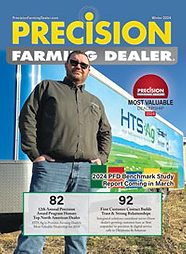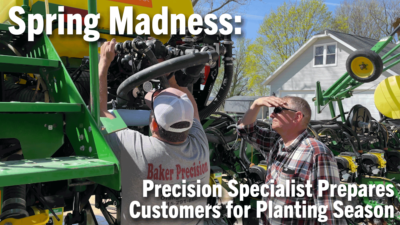The concept of ag data “ownership” is not recognized by U.S. law. Farmers like to say “I own my ag data.” Ag technology companies like to say “the farmer owns their data.” And the industry representatives like to say “the farmer should own their data.” But the reality is that “ownership” is a legal principle that must be recognized by courts or a law, and that has not yet happened in the U.S. for ag data.
Ownership — the right of possession, use, control and to exclude others of the same — has long been classified different ways in the U.S. depending on what type of property is being “owned.” We recognize at least three forms of property, and thus three things that can be owned.
Real Property. Real property ownership was well recognized in the English common law. In Sir William Blackstone’s Commentaries of the Law (1765-1769), Blackstone noted that the laws concerning ownership of land, or "real property," were unique. Courts in England granted an owner of real property a number of rights, such as the right to exclude others, and the right to grant others a lesser estate (such as tenancy) in land. U.S. law followed the English common law, which is why we still use feudal terms like "landlord."
Personal Property. Blackstone also noted that English common law treated differently ownership of things, or “personal property.” Personal property can be more easily transferred or shared than real property. These concepts helped English courts resolve legal ownership issues. For example, should a shed stay with the landlord when a lease ends or should the tenant be allowed to take it with him? The answer depends on whether it is “real” or “personal” property. Personal property is generally movable while real property is not.
Intellectual Property. U.S. law followed the common law’s real and personal property distinctions, but Congress added another category of property to address ownership of intangible objects — so called “intellectual property” or “IP." IP law is statutory and protects inventions (patents), creative works (copyrights) and trademarks. IP law also protects trade secrets, such as the formula for Coca-Cola. No laws that I am aware of specifically recognize ag data as a form of IP, although it may qualify for trade secret protection.
What does this mean for “ownership” of ag data? As a form of property, ag data is a mix of real, personal and intellectual property. Yield data, for example is information inextricably linked to the land, like real property. Yield data is also highly portable, like personal property. But it also contains valuable information, like intellectual property. Those characteristics make ag data unique from other forms of property. Farmers can own real, personal and intellectual property, but ag data is hybrid of all three.
Can we say the farmer owns his or her data? Yes, if the farmer owns the field, the farmer owns the equipment that creates the data and the farmer generates the data. But when others are involved in creating that ag data form of property, ownership becomes a more difficult question.
If you hear about a court or legislative body addressing this issue, please let me know. I can’t wait to see how the issue is perceived.







Post a comment
Report Abusive Comment